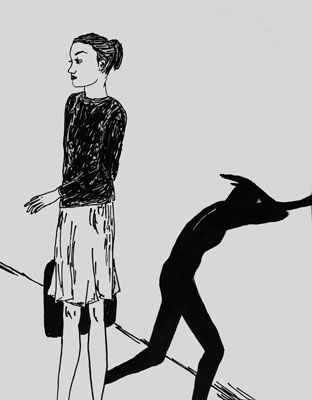All Nonfiction
- Bullying
- Books
- Academic
- Author Interviews
- Celebrity interviews
- College Articles
- College Essays
- Educator of the Year
- Heroes
- Interviews
- Memoir
- Personal Experience
- Sports
- Travel & Culture
All Opinions
- Bullying
- Current Events / Politics
- Discrimination
- Drugs / Alcohol / Smoking
- Entertainment / Celebrities
- Environment
- Love / Relationships
- Movies / Music / TV
- Pop Culture / Trends
- School / College
- Social Issues / Civics
- Spirituality / Religion
- Sports / Hobbies
All Hot Topics
- Bullying
- Community Service
- Environment
- Health
- Letters to the Editor
- Pride & Prejudice
- What Matters
- Back
Summer Guide
- Program Links
- Program Reviews
- Back
College Guide
- College Links
- College Reviews
- College Essays
- College Articles
- Back
Love and Hate
In the beginning there were no emotions. Humans were made, but they were mere empty cases who felt nothing. They went on with their daily lives with nothing in their minds, only doing what nature had them to.
How dull, Mother Nature thought one day. She herself could feel. Emotions bubbled inside her, on the verge of spilling. And so with a wave of her hands, she bestowed all those oozing emotions onto her human creatures she had made. And all their children would inherit those feelings.
Out of all the feelings, Love and Hate were the most prominent. They contradicted each other deeply, and thus a war emerged. The other emotions took their sides; Joy, Trust and Passion became Love’s allies, on the other hand, Anger, Envy and Irritation joined Hate’s side.
The rivalry between Love and Hate surfaced to the humans. They controlled the bodies in which they dwelled like puppet masters. They made humans create fortifications and weapons. Humans loved the feeling of wrath boiling up inside them, determined to wipe out their enemies. Humans also hated when they felt sorry for their enemies, it was sympathy. When their felt compassion, they would then free their enemies from death.
Love could be easily taken advantage of, because of its blind trust in everyone. It did not want to hurt, but still wished to be rid of Hate. Love was confused; it wondered whether it was doing its job by trying to kill off Hate. Was killing Hate a heroic act of Love or a devious act of Hate?
But Hate was different. It had no remorse. Its path was clear: to erase Love off the face of Earth. It exterminated anyone who was in its way, friend or foe. But Hate did not really have any friends. Anger, Envy and Irritation all feared Hate, and were too cowardly to stand up to it. Hate absorbed its allies’ powers. Its anger burst, creating the urge to destroy; it was envious of Love, who was popular and well-liked by everyone; and of course it was irritated that Love still lived, no matter how much it tried to destroy it. However Hate’s lack of trust rebounded off itself, it became suspicious of its allies, and acted alone. Loneliness only made it madder, more irrational, but still all the more formidable.
Love’s overt sentiment made it vulnerable. It let its passion soar, until it fully depended on the one it loved. It did not know how to protect itself from harm, because it believed in the goodness of all. But while its vulnerability was its greatest weakness in the war, it was also its greatest strength. Love had a bright tomorrow to wait for, while though Hate had just as much to live for, the future was not clear and optimistic. Love gave all it had and in return received everyone else’s love and trust.
Hate would always almost dominate Love and be victorious. But it cannot slay Love, for without Love it would not exist. Without Love, how could there be a Hate for the humans to realize? Hate would then take a careful step back, back enough to still exist, powerfully, but not win. And Love could not kill Hate, not that it ever truly wanted to. Without Hate how would the humans know there was a thing called Love? There can be no victor of this war; the champion would become the destroyer of the world. This war was what made it possible for humans to progress and rise above all other animals.
Mother Nature was clever. She watched the war between Love and Hate for centuries and did nothing to stop it. She knew that without this war, there would be nothing for the slothful humans to work for. There would be no smiles, no frowns, no laughter, no growls. And that would be rather dull, wouldn’t it?

Similar Articles
JOIN THE DISCUSSION
This article has 0 comments.
